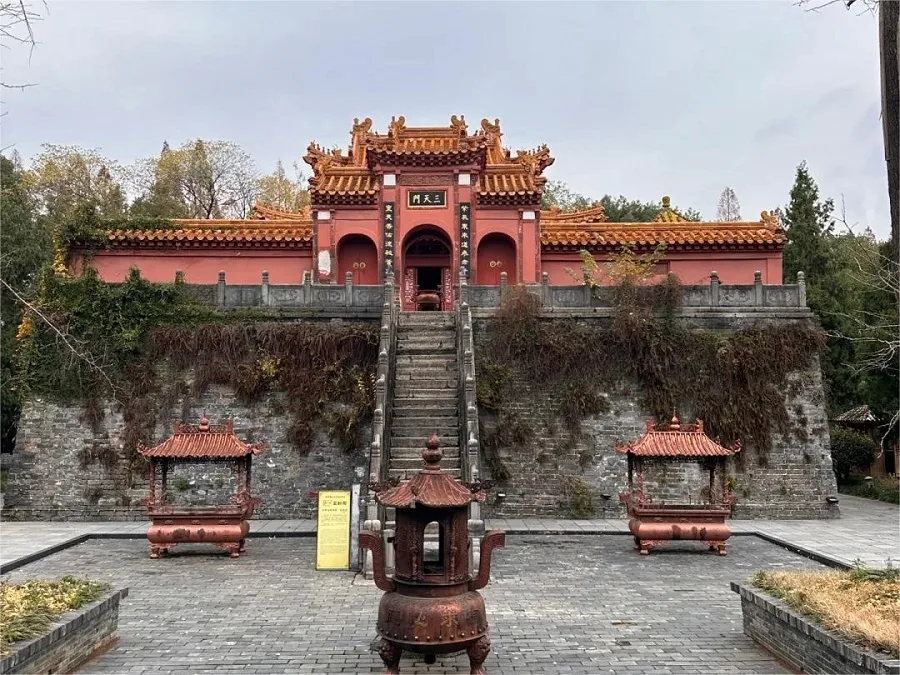Templo Taoísta Xuanmiao, Jingzhou - Entradas, horarios, localización y puntos de interés


Xuanmiao Taoist Temple (玄妙观), originally built during the Tang Dynasty in the Kaiyuan era, fell into ruins due to military conflicts. The existing structure dates back to its reconstruction in the 12th year of the Wanli reign during the Ming Dynasty in 1584. The temple has undergone several name changes throughout history. In 1009, Emperor Zhenzong of the Song Dynasty renamed it Tianqing Temple. Later, in 1297, Emperor Chengzong of the Yuan Dynasty restored its original name, Xuanmiao Temple. In 1339, Emperor Shundi of the Yuan Dynasty bestowed the title “Palace of the Nine Old Immortals” upon it. During the Qing Dynasty, to avoid the taboo of the Kangxi Emperor, the temple was renamed Xuanmiao Temple.
Índice
- Información básica
- Ubicación y transporte
- Layout of Xuanmiao Taoist Temple
- Other Attractions within Jingzhou Ancient City
Información básica
| Duración estimada de la visita | 1 hora |
| Precio del billete | 35 RMB |
| Horario de apertura | 8.30 - 17.30 |
| Número de teléfono | 0086-0716-8801999 |
Ubicación y transporte
Xuanmiao Taoist Temple is located at 34 Jingzhou North Road, Jingzhou District, Jingzhou, Hubei Province, China. It is situated near the northern gate of Jingzhou Ancient City. To get there, you can take bus 18 or 26 and get off at Xuanmiaoguan Stop (玄妙观站).
Layout of Xuanmiao Taoist Temple

Originally, the temple complex consisted of a mountain gate and six halls. The six halls were named Four Saints Hall, Three Pure Ones Hall, Jade Emperor Hall, Xuanwu Hall, Holy Mother Hall, and Zitong Hall. The first four halls were arranged in a straight line. The Xuanwu Hall was placed on a high platform, with the Holy Mother Hall to the east and the Zitong Hall (dedicated to the Zitong Emperor) to the west. Later, only three buildings remained: the Jade Emperor Hall in front, the Three Heaven Gate in the middle, and the Xuanwu Hall (also known as the Purple Emperor Treasure Hall) situated on a raised platform.

The main building, the Jade Emperor Hall, features three layers of flying eaves, resembling a pagoda. At the roof’s top sits a bronze lotus seat, resembling a blooming golden lotus, blending seamlessly with the shimmering glazed tiles, creating a dazzling sight. On a 6-meter-high platform behind the hall stand the Three Heaven Gate and the Xuanwu Hall. Adjacent to the Jade Emperor Hall stands a tall stone stele inscribed with the “Record of the Palace of the Nine Old Immortals.” This stele, erected in the third year of the Zhi Zheng reign (1334 AD) of the Yuan Dynasty, is one of the earliest stone inscriptions in the Jianghan Plain. The inscription recounts the elevation of Tang Dongyun, the chief Taoist of the Xuanmiao Temple, to the status of the ninth immortal by Emperor Shundi of the Yuan Dynasty. The inscription was composed by the famous Yuan Dynasty scholar Ouyang Yuan and calligraphed by the renowned Yuan Dynasty calligrapher Wei Su.
Other Attractions within Jingzhou Ancient City


Former Residence of Zhang Juzheng

Guan Yu Temple, Jingzhou

Sanguo Park, Jingzhou

Taihui Taoist Temple

Guandi temple, Jingzhou

Jingzhou Museum
Hubei Historical Sites, Atracciones de Jingzhou